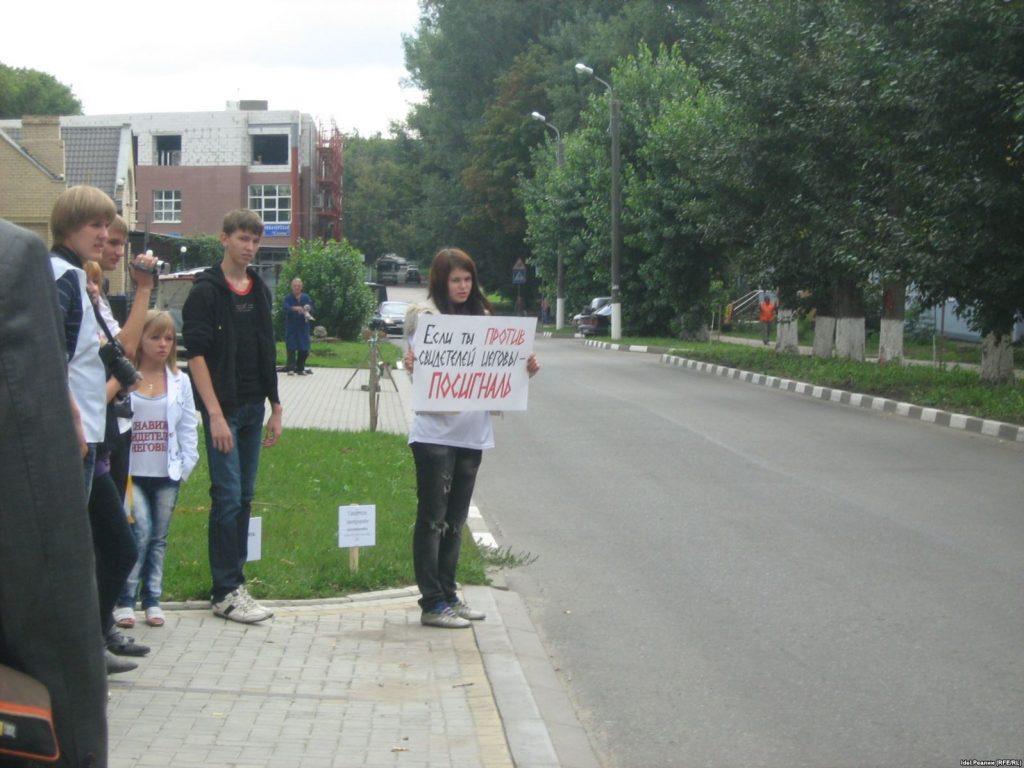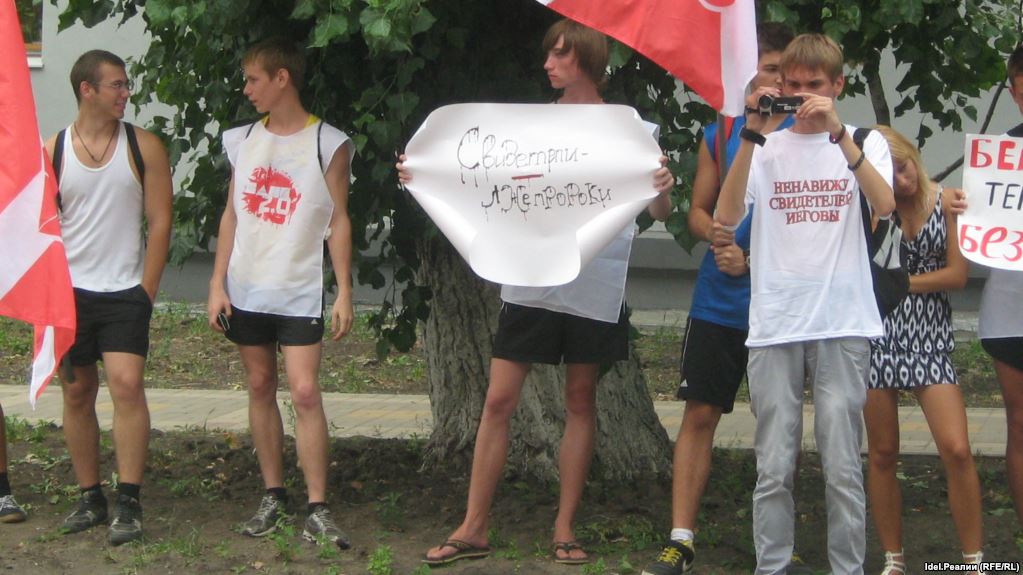When Vladimir Putin said at his press conference last month that he saw no justification for attacks on Jehovah’s Witnesses, many in Russia and the West assumed that the situation there would change, that those who had been incarcerated would be released and that no new charges would be brought or hostility against the Witnesses tolerated.
Those who made those assumptions were wrong, and Putin’s words in this case, as in so many others, have turned out to be PR for himself at home and abroad rather than an indication of what he and his regime actually will do.
These actions show that either Putin doesn’t want the situation to change whatever he says or doesn’t control the actions of lower-level officials and groups associated with his regime; but regardless which of these is the case – and there is good reason to think both are true – no one of good will should assume that Russia has turned the corner on this issue.
At the end of December, that is, after Putin’s remarks, criminal charges of extremism were brought against Sergey Kulakov, a 57-year-old Jehovah’s Witness on Sakhalin Island. His case is now before the courts, and ten days ago, a judge there ordered his residence searched for “evidence.”
The situation of the Jehovah’s Witnesses in Russia remains so bad that an increasing number of them are seeking to emigrate, many to Finland and Germany because those are the easiest countries to get to where asylum is likely to be granted, although some say they would like to come to the US or Great Britain if that is possible.
Not only are they leaving because of their own fears, Radio Svoboda journalist Svetlana Niberlein
says in a report about the Jehovah’s Witness diaspora in Germany; they are departing because sympathetic officials tell them that worse is still ahead and that they should get out while they can.
Niberlein spoke with Andrey K., a 38-year-old Jehovah’s Witness who together with his wife and child have received asylum in Germany. They came there, he says, because they could easily get tickets and because they believed that German officials would recognize their claims of reasonable fear of persecution in their homeland.

Many Jehovah’s Witnesses have secured visas in Moscow, but Andrey and his family came in transit through Serbia, which does not require Russians to get a visa, and then in the Munich transit hall appealed to the police. It took some months, but they were finally granted asylum, a status more than a thousand Jehovah’s Witnesses now have in Germany.
The community is quite active, Andrey continues.
Among the people they have spoken to is a family of Chechens, who even began to attend meetings at the local kingdom hall. “I very much regret,” Andrey says, “that this family was later deported to Chechnya.”
Not all Jehovah’s Witnesses who apply for asylum in Germany are successful, he says. German law takes an individual approach, and if a particular applicant cannot show that he or she has been subject to discrimination, they are rejected. But more than a thousand have received asylum, and most expect to remain in Germany permanently.
The situation in Russia is untenable for Jehovah’s Witnesses.
Andrey showed Niberlein photographs of Nashi demonstrators wearing t-shirts declaring “I hate the Jehovah’s Witnesses” and “Honk if you’re against the Witnesses.” The police told the Witnesses that they saw nothing wrong with what the Nashi people were doing. And that, even more than the demonstrators, is a reason for continuing concern.
Further Reading:
- With Donbas occupation, Russia brought religious persecution alien to Ukraine: report
- Moscow’s campaign against Jehovah’s Witnesses a threat to all believers in Russia
- Putin follows Hitler and Stalin in seeking to repress Jehovah’s Witnesses
- “Putin tells why Russia is seedbed of terrorism” and other neglected Russian stories
- Russia, other former Soviet republics persecuting Christians, new Notre Dame report says
- Three religious developments in Eurasia with more than religious implications
- Religious persecution continues in occupied Donbas

